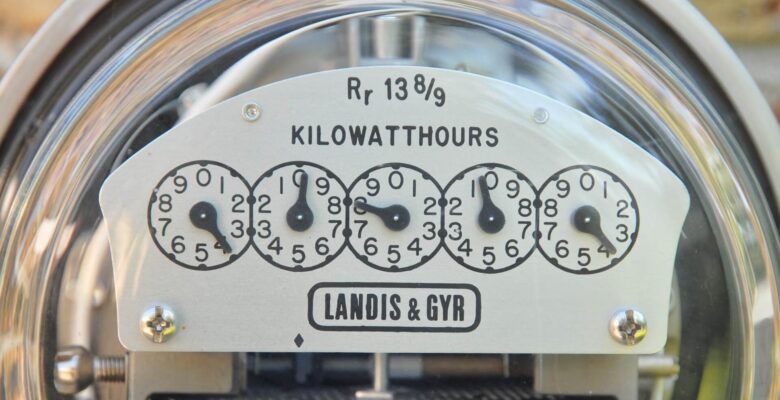
Following an announcement earlier this month, Prime Minister Liz Truss has announced further details of plans to protect businesses from rising energy bills.
Coming into effect from October 1st, the Energy Bill Relief Scheme will cap non-domestic electricity and gas unit prices will be capped at 21.1p per kWh and 7.5p per kWh respectively. The scheme will cover all businesses, public sector and third sector organisations, including those that have entered fixed term contracts at higher unit prices since 1st April 2022. Support will be applied directly to bills, with energy providers compensated for the difference between the price cap and wholesale energy costs.
The new cap for business energy bills is comparable to the discount on offer for households, but will run only for an initial six months, covering energy usage until 31st March 2023. A review into the operation of scheme will take place three months into the price cap, which will inform future ongoing decisions to support non-domestic energy customers.
The level of price reduction for each business will vary depending on their contract type and circumstances:
- Non-domestic customers on existing fixed price contracts will be eligible for support as long as the contract was agreed on or after 1 April 2022. Provided that the wholesale element of the price the customer is paying is above the Government Supported Price, their per unit energy costs will automatically be reduced by the relevant p/kWh for the duration of the Scheme. Customers entering new fixed price contracts after 1 October will receive support on the same basis.
- Those on default, deemed or variable tariffs will receive a per-unit discount on energy costs, up to a maximum of the difference between the Supported Price and the average expected wholesale price over the period of the Scheme. The amount of this Maximum Discount is likely to be around £405/MWh for electricity and £115/MWh for gas, subject to wholesale market developments. Non-domestic customers on default or variable tariffs will therefore pay reduced bills, but these will still change over time and may still be subject to price increases. This is why the Government is working with suppliers to ensure all their customers in England, Scotland and Wales are given the opportunity to switch to a fixed contract/tariff for the duration of the scheme if they wish, underpinned by the Government’s Energy Bill Relief Scheme support.
- For businesses on flexible purchase contracts, typically some of the largest energy-using businesses, the level of reduction offered will be calculated by suppliers according to the specifics of that company’s contract and will also be subject to the Maximum Discount.
Prime Minister Liz Truss said:
“I understand the huge pressure businesses, charities and public sector organisations are facing with their energy bills, which is why we are taking immediate action to support them over the winter and protect jobs and livelihoods.
“As we are doing for consumers, our new scheme will keep their energy bills down from October, providing certainty and peace of mind.
“At the same time, we are boosting Britain’s homegrown energy supply so we fix the root cause of the issues we are facing and ensure greater energy security for us all.”
Chancellor Kwasi Kwarteng said:
“We have stepped in to stop businesses collapsing, protect jobs, and limit inflation.
“And with our plans to boost home-grown energy supply, we will bring security to the sector, growth to the economy and secure a better deal for consumers.”
Business Secretary Jacob Rees-Mogg said:
“We have seen an unprecedented rise in energy prices following Putin’s illegal war in Ukraine, which has affected consumers up and down the country and businesses of all sizes.
“The help we are already putting in place will save families money off their bills, and the Government’s plans for businesses, charities and public sector organisations will give them the equivalent level of support.
“This, alongside the measures we are taking to boost the amount of domestic energy we produce to improve both energy security and supply, will increase growth, protect jobs and support families with their cost of living this winter.”
The announcement of further detail of the support for businesses comes ahead of a mini-budget expected on Friday from new Chancellor, Kwasi Kwarteng, where further measures to ease the cost-of-living crisis on households and businesses are expected to revealed.
The support with non-domestic energy bills has largely been welcomed by the business community.
Kate Nicholls, CEO of UKHospitality, said:
“This intervention is unprecedented and it is extremely welcome that Government has listened to hospitality businesses facing an uncertain winter. We particularly welcome its inclusiveness – from the smallest companies to the largest – all of which combine to provide a huge number of jobs, which are now much more secure. The Government has recognised the vulnerability of hospitality as a sector, and we will continue to work with the Government, to ensure that there is no cliff edge when these measures fall away.”
Stephen Phipson CEO of Make UK, the organisation representing British manufacturers said:
“Industry will warmly welcome the timely announcement of an energy price cap for an initial 6 months for all business users. Government has delivered a scheme which is simple to understand, giving reassurance to the business sector and making immediately available the much needed help companies have been calling for across the board at a time energy costs were spiralling out of control.
“It does appear likely that prices will remain high for many months to come, and if so industry will need support for a longer period to protect jobs and remain competitive, so the further announcement of a review on future support at the 3 month stage is reassuring. We will monitor the impact of the cap closely, and will engage with the review mechanism later in the year to ensure that these priorities are recognised and understood.
“We recognise that all parties have moved at pace and a long way. However Manufacturing businesses are under huge pressure already many are struggling to stay afloat. We hope that this support can be made tangible as quickly as possible and not applied retrospectively at the end of the next quarter”.
Matthew Fell, Chief Policy Director for the CBI, representing nearly 200,000 UK businesses, said:
“We welcome government’s quick and decisive action to provide hard-pressed businesses with a substantial short-term fix to a long-term problem.
“The package will ease worries about otherwise viable businesses shutting-up shop and smaller companies especially will benefit from the discounted rate.
“Businesses will also want to know more about the exit strategy and what happens when the six-month cap runs out. Working closely with business will be key to successful implementation.
“The long-run solution is to double-down on energy security and to incentivise firms to push ahead with ambitious energy efficiency programmes to lower demand.”




















 North West profit warnings down of previous year’s figures
North West profit warnings down of previous year’s figures  Cheshire East Council elects new leader
Cheshire East Council elects new leader  Bank of England continues to hold interest rates at 5.25%
Bank of England continues to hold interest rates at 5.25%